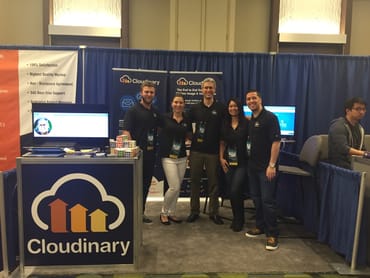



If you make a copy of a copy of a copy, the quality will deteriorate with every ‘generation’. This problem is called ‘generation loss’. It is not difficult to understand why this happens with actual copier machines. Scanning and printing are not perfect, being based on noisy sensors and physical paper and ink, and the resulting noise will tend to accumulate.

It's great to have the capability to transform images on the fly by using dynamic URLs to customize the images to fit the graphic design of your site or mobile application. However, what if you want to transform an image depending on a specific image characteristic (like its width or aspect ratio) or its contents (does it contain a face?). What you need is a way to apply a transformation to an image only if a specific condition is met. Take for example a situation where you have allocated space on your page for a user uploaded image with a width and height of 200 pixels. Furthermore, if the image contains a face you would like to zoom in and focus on the face itself, otherwise you would like to fit the entire image into the available space:


Many of the photos displayed on the internet these days are of people. If your website or mobile application displays photos that include people, you will want to make sure that their faces are included in the delivered images when cropping and transforming them to fit your graphic design and responsive layout. You may even want to further transform an image according to the faces present, for example, adding a harlequin mask overlay on all of their eyes, where each mask is adjusted to the correct size and orientation (although not a typical use case, it's a cool example of using advanced facial attribute detection):

Perhaps some of you readers that have been around for a while remember our add-ons launch 2 years back, when we introduced a number of third party image processing products, fully integrated into the Cloudinary image management pipeline. Since then our add-ons marketplace has grown, both in our offerings and in usage. We now have 11 add-ons offering various capabilities and improvements.



Cloudinary’s JavaScript library accelerates web development by providing automated JavaScript image transformation and management with a few lines of code. The newly released version streamlines the library by providing a much requested jQuery-free core library. At the same time it is fully backward compatible with previous versions. The new library is further enhanced with classes and a chainable API, making the implementation of Cloudinary functionality in your application easier (and more enjoyable!).